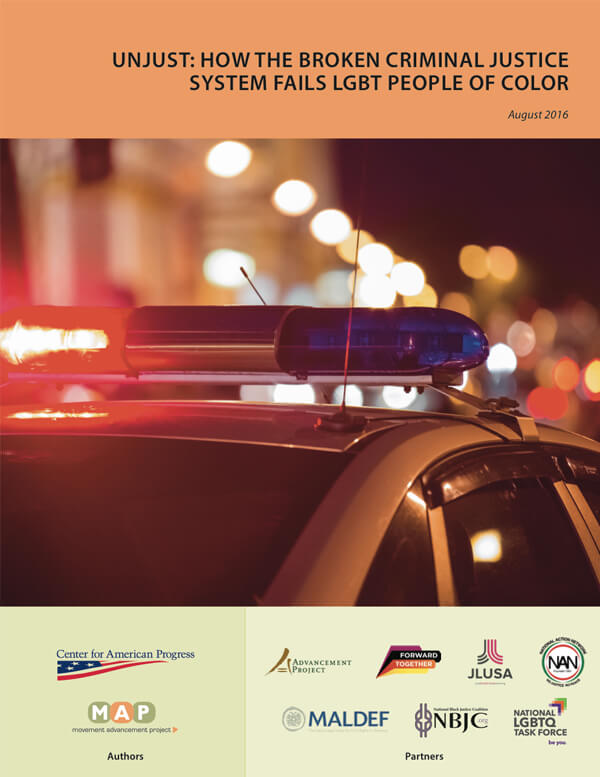The Bottom Line
Unjust: How the Broken Criminal Justice System Fails LGBT People of Color examines how racism and anti-LGBT discrimination combine to make LGBT people of color uniquely vulnerable to entering the criminal justice system and also facing unfair and abusive treatment once they are in it.
The report identifies three factors in the overrepresentation of LGBT people of color in the criminal justice system: racism and pervasive anti-LGBT stigma and discrimination in communities, schools and families; discriminatory enforcement of drug laws and HIV criminalization laws; and policing strategies and tactics that increase the likelihood of LGBT people of color being subject to police stops, arrest and incarceration.
Among the shocking results of these problems: one in five young people in U.S. juvenile justice facilities identify as LGBTQ, and 85% of these individuals are youth of color.
The report also paints a comprehensive portrait of how LGBT people of color are unfairly treated and abused in the system, including:
- Discrimination in court and court proceedings. Evidence shows that LGBT people of color face unique challenges accessing counsel, obtaining pre-trial release, and getting a fair sentence.
- Unfair and inhumane treatment in confinement facilities. When LGBT people of color are placed in confinement facilities to await trial or as part of a sentence, they are extremely vulnerable to harassment, discrimination and inhumane treatment.
- Lack of support in preparing for re-entry. Obtaining skills, staying connected with family, and coordinating re-entry planning services are all crucial elements of a successful life after conviction and confinement, and yet LGBT people of color are disadvantaged in all of these areas.
Unjust treatment of LGBT people of color in the criminal justice system means they are more likely than the broader population to be living with a criminal record. This, in turn, can create enormous challenges as they try to rebuild their lives — challenges that are compounded by the discrimination and bias they already face because of factors related to their race, ethnicity, sexual orientation or gender identity.
How the Broken Criminal Justice System Fails LGBT People of ColorDownload Latino LGBT People & the Criminal Justice System (English)Download Latino LGBT People & the Criminal Justice System (Spanish)Descargar
Recommended citation:


